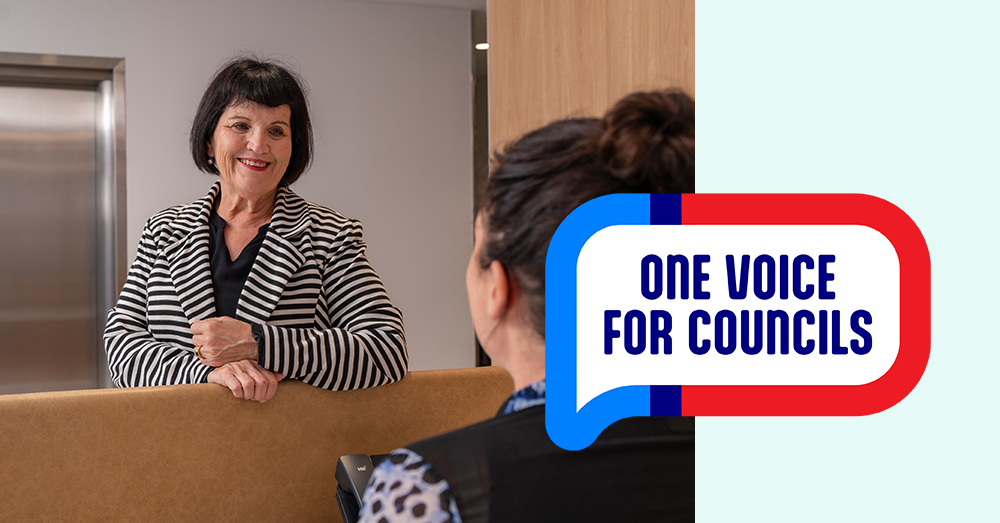
17 September 2024
Elections – a challenging time for many
With voting in this year’s elections now over, I want to sincerely congratulate all candidates on their efforts during what was a challenging campaign.
Importantly, these elections have included a welcome return to local democracy for three councils that had been under administration - Central Coast Council, Wingecarribee Shire Council and Balranald Shire Council. It’s wonderful that voters have once again been able to elect their community representatives.
While formal declaration of the results is yet to come, I sincerely thank the outgoing mayors and councillors for their service to the local government sector, particularly the departing members of the LGNSW Board. I look forward to working with the new mayors and councillors across NSW.
DFSV Primary Prevention Strategy
Last week, the NSW Government released its first standalone strategy for the prevention of domestic, family and sexual violence (DFSV), following on from this year’s NSW budget provision of $38.3 million over four years.
As part of the strategy, the NSW Government will work with councils, community organisations and with existing local networks to establish primary prevention initiatives designed specifically for their communities.
This will include establishing a formal network of councils, relevant government agencies and non-government organisations to allow streamlined information sharing and learning. The primary prevention capacity of councils and community organisations will also be boosted through staff training.
While the full details of these initiatives are not yet available, LGNSW has long called for the NSW Government to provide funding, resources and initiatives to address the prevalence of DFSV in NSW.
Invasive Species Review
The NSW Government has released its interim report as part of the NSW Invasive Species Management Review.
While LGNSW is working through the many complex recommendations and findings, there are some positive inclusions.
The report highlights that the overuse of insecure and short-term funding arrangements, such as the Weeds Action Program (WAP), generates inefficiencies and reactive, intermittent management programs.
The report also reflected what LGNSW has been hearing from many councils: "The timing of funding also affects planning of work throughout the year as Local Control Authorities are uncertain of their funding situation, and employment stability with staff only offered short-term employment leading to a high level of staff turnover. Weed County Councils are particularly impacted in terms of financial security, as a significant proportion of their total funding comes from the WAP."
The report recommends additional funding, but also that WAP funding be allocated for five-year terms, providing much-needed certainty for councils.
Among other recommendations are that the NSW Government should strengthen the enforceability of the Biosecurity Act 2015 and enable councils to introduce cat containment policies in their LGAs.
Consultation on Mutual Recognition Scheme
The Office of Local Government is consulting with councils and other stakeholders on development of a "mutual recognition scheme".
Such a scheme would allow an approval granted to a business under Section 68 of the Local Government Act 1993 by one council to be recognised across multiple local government areas.
It is proposed to initially apply to approvals granted for the following mobile businesses:
- food trucks
- market stall holders
- buskers
- outdoor fitness trainers.
Mutual recognition is intended to reduce red tape, time, cost, and resourcing required for councils and mobile businesses when preparing and assessing Section 68 approvals.
There are many issues to consider for local government, including the importance of councils retaining the power to set appropriate fees and charges and determine the location and trading hours of these kinds of operators.
It’s also important that mobile operators not have unfair advantages over fixed location businesses that are contributing to local services, infrastructure and rates.
LGNSW looks forward to contributing to this review and ensuring we encourage local vibrancy sustainably.
Councils are invited to provide input into the development of the mutual recognition framework by completing an online survey by 5pm on 24 October. Further details, and the survey, are available online.
Regional Development Advisory Council
The Minister for Regional NSW has announced the Expression of Interest for a three-year term of the Regional Development Advisory Council is now open.
The EOI will be open for four weeks and closes on Wednesday 9 October 2024.
The eligibility criteria set out that local government skills and experience are relevant to the Advisory Council but that, unfortunately, existing elected mayors or councillors are ineligible for the Advisory Council.
While this is disappointing, former mayors or councillors and existing general managers are eligible, and I encourage any interested local government representatives to consider applying.
Biodiversity Offsets Scheme inquiry
LGNSW's Chief Executive and staff appeared alongside Narromine Shire Mayor Craig Davies (representing the Country Mayors Association) on Thursday at the inquiry into legislation to amend the Biodiversity Offset Scheme.
It has been a longstanding priority of LGNSW to see this scheme made fit-for-purpose, and this Bill appears to be a good step in the right direction. We welcomed many of the amendments of the Bill that align with the recommendations, including:
- the additional focus on avoiding and minimising biodiversity loss,
- restrictions on payments into the Biodiversity Conservation Fund, and
- greater public transparency.
Importantly, the proposal to amend entry thresholds for small, low-impact local development has the potential to address many of the concerns of rural and regional communities about issues of over-regulation.
These thresholds will need to be set at a suitable level to address the significant challenges with the offsets scheme in rural and regional areas, where offset costs are often disproportionate to the price of land, making many developments unviable.
Sincerely,

BACK TO MAIN PAGE